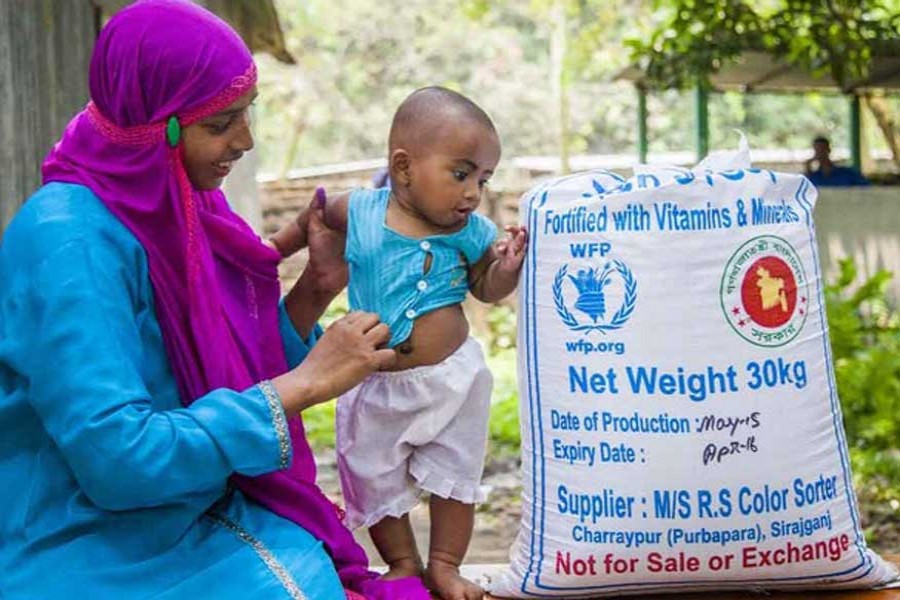
Published :
Updated :

The United Nations World Food programme (WFP) has received a contribution of US$800,000 from the Netherlands embassy in Bangladesh.
The money will be spent to scale up an initiative on rice fortification, which is implemented by WFP in collaboration with the Ministry of Food, the Ministry of Women and Children Affairs, and other partners, a WFP press release said on Wednesday.
Rice fortification aims to reduce micronutrient deficiencies among vulnerable groups in Bangladesh through access to nutrient-dense, fortified rice.
In 2017, the Ministry of Women and Children Affairs distributed fortified rice in 35 sub-districts covered under the Vulnerable Group Development programme, Bangladesh's largest social safety net targeting ultra-poor women. In 2018, distribution of fortified rice is planned in 66 sub-districts, the release added.
This year, the Ministry of Food has agreed to integrate the distribution of fortified rice in two sub-districts under the government's new social safety net, known as the Food Friendly programme. More than 350,000 people across 107 sub-districts will benefit from the distribution of fortified rice.
"Through a rice fortification effectiveness study, we found that the consumption of fortified rice reduced anaemia by 4.8 per cent and zinc deficiency by 6.0 per cent among ultra-poor women," said Christa Räder, WFP Representative and Country Director in Bangladesh.
"We want to make fortified rice available in the market so that the entire population of Bangladesh can benefit from it," she added.
"Rice fortification is very effective in improving the nutritional status of people, especially ultra-poor women," said Jeroen Steeghs, Chargé d'affaires of the Embassy of the Kingdom of the Netherlands in Bangladesh.
"Our ultimate goal is that fortified rice will be commercially available in the market. For this we need the Government of Bangladesh to create the necessary enabling environment," he noted.
As micronutrient deficiencies adversely impact physical and cognitive wellbeing, reducing such deficiencies through consumption of fortified rice will help contribute to Bangladesh achieving the Sustainable Development Goals, said WFP.
Rice fortification provides an immediate, ready-to-use product that helps to address micronutrient deficiencies at a large scale. Fortified rice kernels look, taste and cook like ordinary rice but are enhanced with six essential vitamins and minerals: Vitamin A, Vitamin B1, Vitamin B12, Folic Acid, Iron and Zinc. They are mixed with ordinary rice at a ratio of 1:100.
WFP is the world's largest humanitarian agency fighting hunger worldwide, delivering food assistance in emergencies and working with communities to improve nutrition and build resilience. Each year, WFP assists some 80 million people in around 80 countries.


 For all latest news, follow The Financial Express Google News channel.
For all latest news, follow The Financial Express Google News channel.